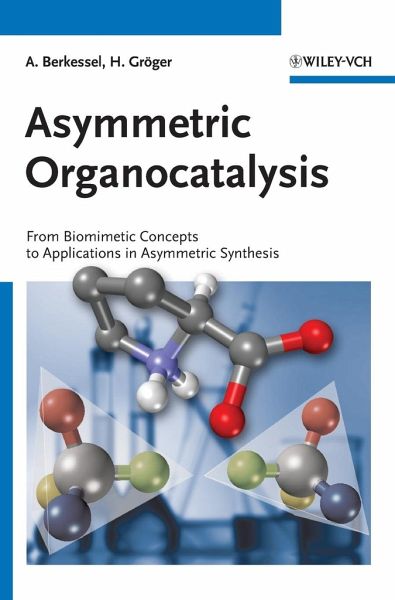Nicht lieferbar

Asymmetric Organocatalysis
Versandkostenfrei!
Nicht lieferbar
Asymmetric catalysis represents still one of the major challenges in modern organic chemistry. Besides the well-established asymmetric metal-complex-catalysed syntheses and biocatalysis, the use of "pure" organic catalysts turned out to be an additional efficient tool for the synthesis of chiral building blocks. In this handbook, the experienced authors from academia and industry provide the first overview of the important use of such metal-free organic catalysts in organic chemistry. With its comprehensive description of numerous reaction types, e.g., nucleophilic substitution and addition reactions as well as cycloadditions and redox reactions, this book targets organic chemists working in industry and academia, and deserves a place in every laboratory.
Die enantioselektive Synthese ist eine eine Herausforderung für den modernen Organiker. Die weit verbreitete enantioselektiveKatalyse mittels chiraler Metallkomplexe kann Probleme bei der Produktabtrennung verursachen. Eine elegante Alternative ist die Katalyse mittels kleiner chiraler organischer Moleküle. Das erfahrene Autorengespann aus Hochschule und Industrie gibt mit diesem Handbuch erstmals eine Übersicht über den Einsatz solcher nicht metallhaltiger Katalysatoren in der Laborpraxis.Alle wichtigen Reaktionstypen wie nucleophile Substitution, nucleophile Addition, Cycloaddition, Oxidation und Reduktion werden behandelt. Daneben werden verschiedene Verfahren zur Racemattrennung vorgestellt. Ein zusätzlicher Fokus liegt auf den industriellen Anwendungsmöglichkeiten der neuen Verfahren.Mit einer umfassenden Beschreibung der Synthesestrategien und Methoden wendet sich dieses Buch an den praktisch arbeitenden Chemiker in Industrie und Hochschule und sollte in keinem Labor fehlen.




